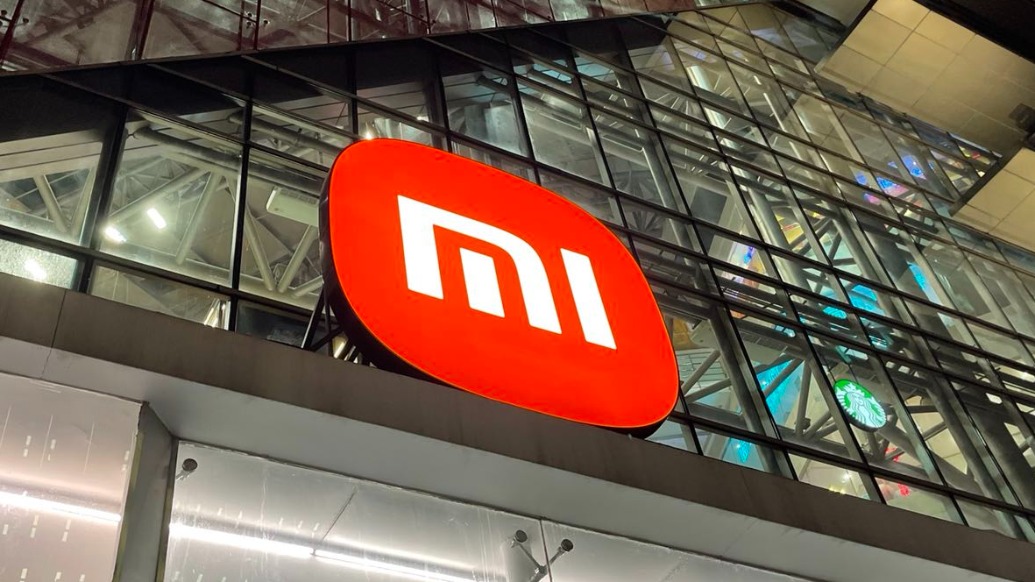

Xiaomi once again delivered impressive results.
On August 19, Xiaomi Group (01810.HK) released its second-quarter earnings announcement. Total revenue for the second quarter reached 116 billion yuan, a year-on-year increase of 30.5%, exceeding 100 billion yuan for three consecutive quarters. Adjusted net profit reached 10.8 billion yuan, a year-on-year increase of 75.4%, exceeding 10 billion yuan for two consecutive quarters.
Xiaomi Motors remains the center of attention. "At the current pace, Xiaomi Motors is expected to be profitable in a single month or quarter in the second half of the year," Xiaomi President Lu Weibing said in a conference call following the earnings release. Xiaomi is confident of achieving its annual delivery target of 350,000 vehicles, and plans to officially enter the European electric vehicle market in 2027.
Automotive business revenue surges: profitability expected in the second half of the year
According to the financial report, Xiaomi's automotive business revenue increased significantly in the second quarter.
Revenue from innovative business divisions such as smart electric vehicles and AI increased by 233.9% to 21.3 billion yuan from 6.4 billion yuan in the second quarter of last year; among them, revenue from core automotive business increased by 230.3% from 6.2 billion yuan in the second quarter of 2024 to 20.6 billion yuan in the second quarter of this year, mainly due to an increase in vehicle deliveries and ASP.
Vehicle deliveries increased by 197.7% from 27,307 vehicles in the second quarter of 2024 to 81,302 vehicles in the second quarter of this year, due to the successful increase in production capacity.
The average selling price (ASP) of smart electric vehicles increased by 10.9% from RMB 228,644 per vehicle in the second quarter of 2024 to RMB 253,662 per vehicle in the second quarter of 2025, primarily due to the delivery of the higher-ASP SU7 Ultra. The gross profit margin of the smart electric vehicle and AI and other innovative business segments was 26.4%. In the second quarter of this year, Xiaomi's smart electric vehicle and AI and other innovative business segments incurred an operating loss of RMB 300 million.
Lu Weibing stated that Xiaomi's automotive business saw its operating losses narrow to 300 million yuan in the second quarter, and at the current rate, it is expected to achieve profitability in a single month or quarter in the second half of the year. However, despite over 30 billion yuan invested over the past three years, the accumulated losses remain substantial, and full profitability is still a long way off. He also mentioned that the YU7 series, building on the impressive performance of the SU7, "has once again created Xiaomi's hit product miracle," and that the company has decided to officially enter the European electric vehicle market in 2027.
Lu Weibing also revealed that Xiaomi Group's overall revenue is expected to grow by more than 30% in 2025, and he is confident in achieving this goal.
He mentioned that Xiaomi is not participating in price wars or internal competition in the automotive industry. Xiaomi Auto's primary mission is to deliver its vehicles. Regarding increasing automotive production capacity, Lu Weibing stated that the first step is to dig deep internally and continuously improve work processes and efficiency. Secondly, while ensuring quality and safety, Xiaomi must collaborate with factory partners to increase production capacity. Some time ago, Xiaomi also held a supplier mobilization meeting, with hundreds of suppliers in attendance to help Xiaomi deliver production capacity.
The financial report shows that the gross profit margin of innovative business divisions such as smart electric vehicles and AI will increase from 15.4% in the second quarter of 2024 to 26.4% in the second quarter of 2025, mainly due to the decline in core component costs, lower unit manufacturing costs, delivery of SU7 Ultra and increased gross profit margins of other related businesses.
Responding to competition in the home appliance industry: Don't worry about short-term rankings
Recently, Xiaomi and Gree started a war of words over air conditioners, which attracted widespread attention.
Xiaomi Group partner and president Lu Weibing said that the price war in the home appliance industry was quite fierce in the first half of this year, and many big brothers "did not take any light action", but Xiaomi withstood the impact of the price war. In the second quarter, Xiaomi's home appliance revenue increased by 66%, and the ASP of air conditioners increased by about 10%, achieving a simultaneous increase in both volume and price.
Lu Weibing stated that Xiaomi is committed to investing heavily in core technologies, avoiding price fluctuations in the home appliance industry and focusing on short-term rankings. He added that monthly or quarterly rankings are unimportant. What matters most is whether the long-term landscape will change and whether Xiaomi will ultimately prevail. He expressed complete confidence in Xiaomi's home appliance business and stated that the company will successfully achieve its goals set earlier this year.
Xiaomi's financial report revealed that in the second quarter of this year, revenue from its smart home appliances reached a record high, with a year-on-year growth of 66.2%. Among them, air conditioner shipments exceeded 5.4 million units, a record high, with a year-on-year growth rate of over 60%; refrigerator shipments exceeded 790,000 units, with a year-on-year growth rate of over 25%; and washing machine shipments exceeded 600,000 units, with a year-on-year growth rate of over 45%.
Xiaomi stated that within the home appliance industry, Xiaomi's smart large appliances achieved ASP growth despite price wars, further driving improvements in its product mix. According to data from Aowei Cloud Network, Xiaomi was the only brand among the top ten online air conditioner brands to achieve both volume and price increases in the first half of the year. The rapid growth of the large appliance business drove Xiaomi's IoT business to a new record high in quarterly revenue.
Talking about the mobile phone business: Hoping to enter the "200 million yuan club"
In the second quarter of this year, Xiaomi's smartphone business revenue was 45.5 billion yuan, with a gross profit margin of 11.5%; global smartphone shipments were 42.4 million units, a year-on-year increase of 0.6%.
According to Canalys data, Xiaomi ranked among the top three smartphone manufacturers globally in the second quarter of 2025, with a market share of 14.7%. Xiaomi rose to first place in Southeast Asia, with a year-on-year increase of 1.6% in market share to 18.9%. It rose to second place in Europe, with a year-on-year increase of 3.4% in market share to 23.4%. It remained firmly in second place in the Middle East and Latin America, with market shares of 18.7% and 19.6%, respectively. It ranked third in Africa, with a year-on-year increase of 2.7% in market share to 14.4%. In the second quarter of 2025, Xiaomi ranked among the top three smartphone manufacturers in 60 countries and regions, and in the top five in 69 countries and regions.
"It is estimated that mobile phone shipments will reach about 175 million units throughout the year, and China's market share is also steadily increasing," said Lu Weibing.
He mentioned that in terms of mobile phones, Xiaomi will pay more attention to the high-end strategy and will shift its focus from the 4,000-6,000 yuan market to the market above 6,000 yuan. There are currently several strong driving factors in the Chinese market: first, the expansion of new retail stores, second, the brand potential formed by the success of Xiaomi Automobile has driven the mobile phone business; third, the overseas market. With the development of markets such as Europe and Southeast Asia, Xiaomi's market share has reached second place.
"Although the global market hasn't grown, Xiaomi still has a long way to go. Our goal is to join the 200 million yuan club, which means Xiaomi, Apple, and Samsung are all priced per unit, with annual shipments exceeding 200 million units. We hope to achieve this goal in 3-5 years."
Lu Weibing said that driven by the strong automotive business, Xiaomi expects to achieve its overall goals for the whole year.


